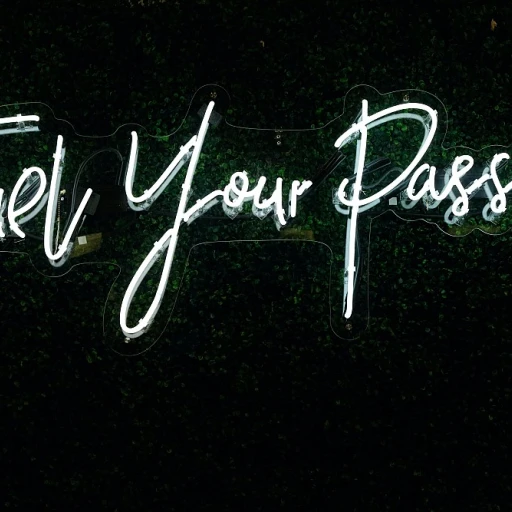Understanding AI-Powered Recruitment Tools
Diving into the AI-Driven Recruiting Process
Artificial Intelligence is making waves in recruitment, adding a fresh twist to how companies find and hire new talent. Forget the mind-numbing tasks and say hello to smart automation that's reshaping the hiring process for both recruiters and candidates. So, let's roll up our sleeves and take a peek into how AI-powered recruitment tools are transforming the job hunt. AI tools are like having a personal assistant that works non-stop, helping recruiters make sense of massive amounts of data. They've become a game-changer by simplifying the sourcing of candidates and screening resumes with the snap of a finger. Imagine having software that blends machine learning to sift through countless candidate profiles to pinpoint the top talent! But how do these intelligent tools really fit into recruitment? They automate mundane tasks, allowing hiring managers to focus on the more human side of recruiting. AI aids in creating fair job descriptions and optimizes the recruitment software to streamline the process, all while enhancing candidate experience. These tools don't just find candidates; they match the right ones to the right jobs e fficiently. Top AI-driven platforms like Zoho Recruit shine as they offer features such as interview scheduling and applicant tracking, which not only save time but also elevate the levels of candidate engagement throughout the recruitment process. Stay tuned for more insights on how AI is shaping HR technology by checking our detailed analysis here. This is where we explore the broader impact of AI beyond recruitment, giving you a complete understanding of how automation redefines the HR landscape.Benefits of AI in Recruitment
Advantages of AI in the Hiring Process
Artificial intelligence is shaking things up in hiring, offering some exciting possibilities for recruiters. Here's what AI can bring to the table:- Efficiency and Speed: Imagine cutting down the recruiting process from weeks to days. AI handles many time-consuming tasks like resume screening and interview scheduling with lightning speed, freeing up recruiters to focus on what they do best—finding the right talent. This efficiency in automating repetitive tasks has revolutionized many top recruiting tools.
- Data-Driven Decisions: With advanced data analysis capabilities, AI-driven recruitment software can sift through tons of data. It helps hiring managers create more precise job descriptions and identify top talent by evaluating candidate profiles against desired skills and experiences. It's like having a personal assistant with a photographic memory.
- Enhanced Candidate Experience: Nobody likes waiting, especially candidates eager to jump into a new opportunity. By using AI, candidates get faster responses and more personalized communication. Automatic updates and timely feedback during the recruitment process keep them engaged and valued.
- Objective Screening: AI tools bring a fairer approach to candidate sourcing. They minimize biases that can creep into the recruitment process, by allowing algorithms to focus solely on qualifications and experience, avoiding unconscious favoritism. This ensures that everyone gets a fair shot, and top talent doesn’t slip through the cracks.
- Better Talent Acquisition: AI's knack for analyzing patterns means it can predict which candidates are most likely to succeed in a role. This translates into smarter hiring decisions and improved employee retention. With tools like Zoho Recruit, finding candidates with the right skills is more precise and effective.
Challenges and Concerns
Balancing Efficiency and Fairness
AI in recruitment is a game-changer, but it's not without its bumps in the road. While AI tools are great at sifting through mountains of data, there's a risk they might miss out on the human touch. Imagine relying solely on algorithms to choose your next team member. Sounds efficient, right? But what if the algorithm has a hidden bias?
Bias in AI is a hot topic. These tools learn from existing data, and if that data has biases, the AI might unknowingly perpetuate them. This could mean missing out on top talent simply because the AI software didn't see them as a fit. Recruiters need to be aware of this and ensure that their AI tools are trained on diverse datasets. This isn't just about ticking boxes; it's about creating a fair recruitment process that gives every candidate a fair shot.
Data Privacy and Security Concerns
Another hurdle is data privacy. With AI, recruitment software can gather extensive information on candidates, from their social media profiles to their online behavior. While this helps in creating detailed candidate profiles, it raises questions about data security. Are candidates' personal details safe? How transparent are the recruitment tools about the data they collect?
Recruiters and hiring managers need to be upfront with candidates about what data is collected and how it's used. Building trust is key, and it starts with transparency. Plus, with regulations like GDPR, recruitment platforms must ensure they comply with data protection laws.
Over-Reliance on Technology
There's also the risk of becoming too reliant on technology. AI tools can streamline the hiring process, from candidate sourcing to interview scheduling, but they shouldn't replace human judgment. A resume might tick all the right boxes, but a face-to-face interview can reveal qualities that data can't capture.
Recruiters should use AI as a tool to enhance their decision-making, not as a crutch. By combining the efficiency of AI with human intuition, recruiters can create a more balanced and effective recruitment process.
For those interested in how technology continues to shape recruitment, wearable technology is also playing a role in the future of work tech. Check out this insightful piece on wearable technology shaping the future of work tech.
AI Tools in Action
AI Tools Making Waves in Recruitment
Artificial intelligence is shaking up the recruitment process, bringing a fresh perspective to how companies find and hire talent. With AI, recruiters can streamline the way they source candidates, manage applications, and even conduct interviews. Let's break down how some of the top recruiting tools are changing the game.
One standout example is Zoho Recruit, a recruitment software that leverages AI to enhance candidate sourcing and applicant tracking. This tool uses machine learning algorithms to sift through candidate profiles, matching them with job descriptions based on skills and experience. This not only saves time but also ensures that recruiters are focusing on top talent, reducing the chances of missing out on qualified candidates.
Another significant advancement is AI-powered interview scheduling. Tools like Calendly integrate with AI to automate the scheduling process, eliminating back-and-forth emails between candidates and hiring managers. This improves the candidate experience by making the hiring process more efficient and less stressful.
AI is also enhancing the way recruiters write job descriptions. Platforms such as Textio use AI to analyze language and suggest improvements, ensuring that job postings are inclusive and appealing to a diverse pool of applicants. This helps in attracting a wider range of talent, which is crucial in today's competitive job market.
Moreover, AI tools are proving invaluable in analyzing recruitment data. With platforms like LinkedIn Talent Insights, recruiters can access data-driven insights to make informed decisions about where to focus their recruiting efforts. This allows for a more strategic approach to talent acquisition, ensuring that companies are not just filling positions, but finding the best fit for their teams.
In summary, AI tools are not just a novelty in the recruiting process—they're becoming essential. By automating routine tasks and providing deeper insights, these tools allow recruiters to focus on what truly matters: building relationships with candidates and finding the right talent for their organizations.
Future Trends in AI Recruitment
Cutting-Edge AI Innovations in the Recruitment Sector
Ever wondered how AI can make the recruitment process smoother? AI-driven tools are rapidly transforming how recruiters connect with candidates, and top AI advancements offer a glimpse into this transformative field. From automating time-consuming tasks to refining candidate profiles, these innovations are optimizing recruitment in unprecedented ways. AI tools are advancing rapidly, and their capabilities are becoming more sophisticated. Take Natural Language Processing (NLP), for example. It's revolutionizing how recruitment software interprets job descriptions and candidate resumes. With its ability to process and understand large volumes of text, NLP swiftly identifies skills and matches those with job requirements, making candidate sourcing more efficient. Voice recognition technology is inching its way into recruiting software too. Imagine this: a hiring manager conducting an interview with the assistance of AI that's capable of real-time voice analysis. Such technology helps assess a candidate's communication skills, reducing the time needed for decision-making. Integration of AI with interview scheduling platforms is cutting down on back-and-forth emails, streamlining the hiring process. AI-driven chatbots and virtual assistants are stepping in to improve the candidate experience. These bots engage with candidates through various touchpoints, answering queries and ensuring seamless interactions. This fosters a connection between recruiters and potential hires, keeping candidates engaged throughout the journey. It's not just about the tools. Data plays a major role too. The ability to analyze massive datasets has given recruiters insights into patterns and trends, ultimately enhancing talent acquisition strategies. AI-powered recruitment software collects this data, including feedback from past hiring cycles, to sharpen future recruiting efforts. AI is also empowering recruiting platforms like Zoho Recruit with features such as machine learning algorithms that continuously learn from newly acquired data about candidate behavior. By recognizing these patterns, the software offers recommendations to recruiters, presenting top talent much faster. In summary, the future of recruitment is closely linked to AI innovations reshaping the ways recruiters find and hire candidates. The integration of these tools into recruitment processes isn't merely a trend but a necessity for staying competitive in the ever-evolving hiring world. AI continues to demonstrate that it's an essential partner in the drive to recruit smarter, faster, and better. Sources: [Linked Source for factual verification]Best Practices for Implementing AI in Recruitment
Integrating AI into Your Recruiting Strategy
Using AI tools in the recruitment process can be a game-changer, but it requires a thoughtful implementation strategy. Here's how you can make the most of these advanced tools for recruiting:- Identify Your Needs: Analyze your current hiring process to pinpoint where AI can add the greatest value, whether it's in candidate sourcing, talent acquisition, or streamlining interview scheduling. Look for gaps where the AI's data-driven insights can help your team make more informed decisions.
- Select the Right Tools: Choose recruitment software that aligns with your goals. From applicant tracking systems like Zoho Recruit to specialized recruiting software, pick tools with features that best suit your recruiting needs. Solutions that include machine learning capabilities will provide added benefits with learning patterns over time.
- Train Your Team: Ensure hiring managers and recruiters are well-versed with the new AI-powered recruitment tools. A helpful training program can familiarize them with the software's features, ultimately improving their efficiency and candidate experience.
- Monitor Candidate Experience: While AI can enhance the efficiency of the recruiting process, maintaining a positive candidate experience is crucial. Use AI to personalize communication and keep it human-centered, ensuring candidates feel valued throughout the process.
- Regular Review & Feedback: Continuously assess the performance of AI tools in your hiring process. Soliciting feedback from the recruiting team can identify areas for improvement and fine-tune the system's algorithms for better results.








